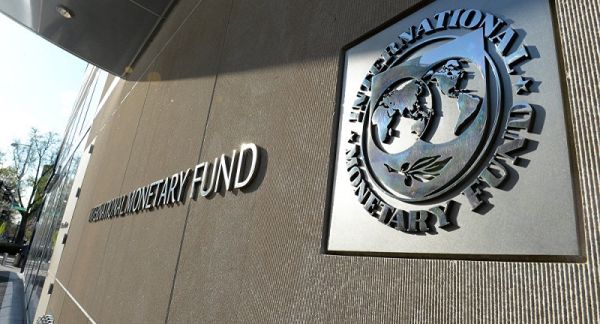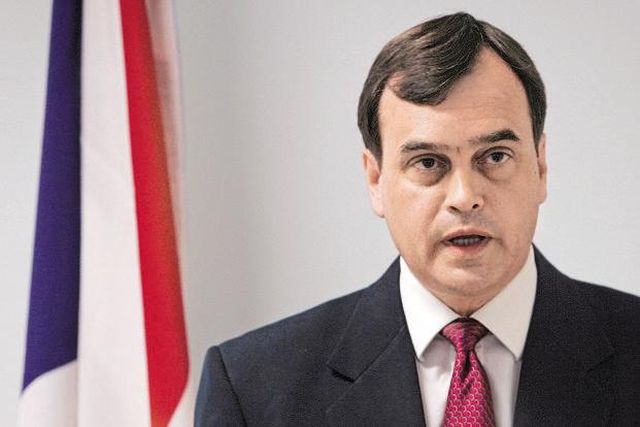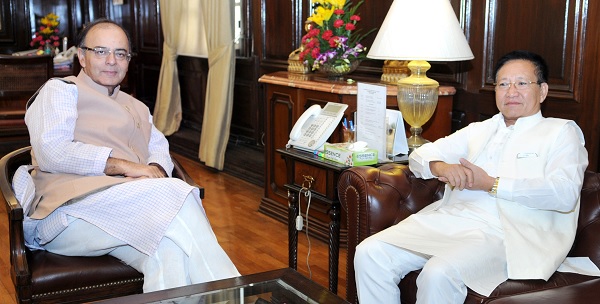
by Editor | May 25, 2021 | Commodity Market, Economy, Investing, Markets, News
 By Arul Louis,
By Arul Louis,
United Nations : India has called for a new global partnership to stimulate the weak economic growth through long-term investments in critical sectors and enhancing trade.
The global economic recovery is only progressing slowly and growth is weaker than expected while risks persist, Ashish Sinha, a First Secretary in India’s UN Mission, told the General Assembly committee dealing with economic and financial matters on Thursday.
In this scenario, there was great need for a renewed global partnership to promote longer-term investment, including foreign direct investment, in critical sectors such as transportation, agriculture, energy, infrastructure, and information and communications technology, he said.
“Policies for enhancing economic growth and growth inducing investment should be our top priority,” he said.
In July, the World Bank projected the global growth rate for this year to be just 2.7 per cent, marginally up from last year’s 2.4 per cent.
Sinha said: “The new partnership should also identify effective mechanisms to mobilise additional resources for financing sustainable development.”
He recommended trade liberalisation and integration into the global economy as a way to spur growth in developing countries citing the case made by Arvind Panagariya, the former vice chairperson of the Niti Aayog, in his keynote address to the committee.
“Open trade is a means to create employment and contribute to achievement of SDGs (UN’s Sustainable Development Goals) through greater economic activity and revenues,” he said.
“Developing countries derive significant benefit from an open, fair, rule-based, predictable, and non-discriminatory trading and financial system.”
Sinha gave an assurance of India’s support for a multilateral trading system with the World Trade Organisation (WTO) “as the cornerstone”.
“India believes that multilateral negotiations such as those envisaged under the Doha Development Agenda (DDA) are aimed at addressing existing inequities in the trading system and must be given high priority,” he said.
The DDA the WTO negotiation launched in Doha in 2001 aimed at lowering trade barriers and revising trading rules to mainly benefit developing countries.
Sinha said that additional measures such as improving rural infrastructure were needed to help integrate rural households into world markets.
(Arul Louis can be reached at arul.l@ians.in)
—IANS

by Editor | May 25, 2021 | Economy, News, World
 Washington : The global economy will expand faster next year while still facing challenges, such as low productivity, high income inequality and low inflation, according to a senior International Monetary Fund (IMF) official.
Washington : The global economy will expand faster next year while still facing challenges, such as low productivity, high income inequality and low inflation, according to a senior International Monetary Fund (IMF) official.
“The most recent IMF forecast, issued in July, projected global growth at 3.5 per cent this year and 3.6 per cent in 2018… The Fund will issue its next World Economic Outlook in a week, and there is every reason to see these trends continuing,”Zhang Tao, deputy managing director of the IMF, said on Monday.
Zhang said the IMF’s emergency lending has declined as countries have found their financial footing again as the impact of the global crisis fades, reports Xinhua news agency.
However, he warned of the challenges the global economy is still facing, such as low productivity growth, income polarisation in some advanced economies, and low inflation.
“Innovation has reshaped labour and product markets. However, this disruptive change has taken place without an apparent increase in productivity,” said Zhang.
Low productivity growth has also contributed to the rise of income inequality in advanced economies, because it has become more difficult to raise living standards due to low productivity, according to the official.
Another challenge facing the global economy is low inflation linked to the low level of wage growth, said Zhang.
He attributed low wage growth to structural forecasts, such as weak productivity growth, aging population and the increasing consolidation of companies.
“Achieving stronger growth will require the right combination of policies, especially to reinforce labour and capital markets,” said Zhang.
He called for a range of reforms to improve efficiency and competitiveness of the global economy.
—IANS

by Editor | May 25, 2021 | Economy, News, Politics

Dominic Asquith
Kolkata : India’s economic success and development are vital to the global economy and to Britain’s interests across South Asia, the British envoy to India said here on Thursday.
“India’s economic success and development are vital to the global economy and to UK interests across South Asia, and to global priorities like sustainable development goals,” British High Commissioner to India Dominic Asquith said during an interaction with students of Heritage School of Technology here.
Asquith underlined the target action areas.
“The target action areas include improvement in the business environment, skill development, employment generation, energy security and developing smarter cities as engines of growth,” said the senior diplomat.
Noting that India was currently the world’s ninth largest economy and predicted to become the third largest by 2050, he observed that its economy was now the fastest growing globally.
“It is the third largest emitter of greenhouse gases despite 300 million people lacking access to energy,” said Asquith.
He saw education, skills and entrepreneurship as the backbone of the UK-India future partnership.
“I hope the next gen in both countries will take advantage of the opportunities available to become Living Bridges connecting the people of both nations across political, economic and social platforms,” said the High Commissioner.
Asquith said the UK India Education and Research Initiative in its first two phases has supported over 1000 new education and research partnerships that aim to deliver long term prosperity benefits for both the UK and India.
The programme has also facilitated 25,000 exchanges of academicians, researchers, staff and students, creating lifelong links between the UK and India and over 35 million young people have benefited through train the trainer programmes.
—IANS

by Editor | May 25, 2021 | Corporate, Corporate finance, Economy, News

Chief Minister of Nagaland,T.R. Zeliang meeting on the Union Minister for Finance, Corporate Affairs and Information & Broadcasting,Arun Jaitley, in New Delhi
New Delhi:(IANS) Given the worries plaguing the global economy, India will ensure that fundamentals at its own end remain strong to attract capital with resolution soon on all tax disputes, and framing of a new bankruptcy code and an updated procurement law, Finance Minister Arun Jaitley said on Thursday.
“In such a situation where there is turmoil almost by the day in global markets, we are trying to make the fundamentals of our own economy strong, and our ability to resist these changes can substantially improve,” Jaitley said, ahead of the monetary policy update in the US.
“Without investment, there is going to be no additional economic activity,” he said at the India Economic Convention, organised here by the Federation of Indian Chambers of Commerce and Industry (Ficci) and attended by ministers, the who’s who of India Inc. and key policymakers.
The finance minister’s remarks came just ahead of the meeting of the Federal Open Market Committee, an arm of the US central bank, set to review later Thursday the country’s interest rate regime, which the global financial markets, including India, have been watching very keenly.
The fear is that if there is a hike in interest rates — for the first time since 2006 — there could be a flight of capital away from emerging market economies such as India towards the US, since investments there would become more attractive.
Jaitley said that with the stated objective on ease of doing business, all tax disputes will be put to rest over the next few days, and added that this was a “work in progress” along with steps to make it easier to do business in India.
“Since May 2014, a number of tax disputes have been put to rest since the Bharatiya Janata Party government took office,” the finance minister said alluding to the issue of retrospective tax on capital gains which has been much criticised, notably by overseas investors and funds.
“We are trying over the next few days itself (to look at pending disputes) so that many others can be put to sleep — either by a judicial resolution or some executive resolution.”
Speaking about economic reforms, Jaitley said that while the goods and services tax regime was stuck because of political reasons, the government was taking other steps, like putting in place a new bankruptcy code, fast-track arbitration norms, and a revamped public procurement law.
This apart, hiring norms for banks were being recast and their balance sheets recapitalised to make them financially stronger. The stressed assets of companies in infrastructure, steel and power distribution were also being dealt with.
These steps, he said, were key to fetching investment.
“Any architecture of Indian growth — along with private investment, public investment when it picks up, and foreign direct investment — will need a lot of resource diversion to skill India and make these people in unorganised sector also to start generating jobs,” he said.
“Kick-starting our manufacturing sector and improving its growth rate further, I think, is one of the greatest challenges to the Indian economy. We have now decided that within the area of growth architecture, we must first concentrate on agriculture.”

by Editor | May 25, 2021 | World

Raghuram Rajan
Ankara:(IANS) Stressing investors should not be scared of transient volatility in markets, India’s central bank governor Raghuram Rajan on Friday said the problems facing the global economy include low productivity and low investments with people saving more and spending less.
“We should not be scared of (markets) volatility,” Rajan said here addressing a meeting business leaders from G20 countries called the B20 meet, a statement said.
The Reserve Bank of India (RBI) head said finance “is only a lubricant to growth” and it would be the overall economic policies of the countries that would determine their basic growth momentum, adding the current problems for the global economy include people saving more and spending less, low productivity and low investments.
Rajan also warned that central banks worldwide might have engendered excessive fragility in the system.
When Rajan took charge at RBI in 2013 at a time the US Federal Reserve had declared its intent to wind down its stimulus programme, the rupee plunged in value in respect of the US dollar on fears about a spiralling current account deficit.
In a series of measures, Rajan managed to stabilize the currency that also brought back investors. “Rajan’s disciplined and focussed approach in leading the Reserve Bank during his first year as governor was remarkably impressive,” British magazine Central Banking said earlier this year giving Rajan their central banker of the year award for 2015.
He had predicted the 2008 markets crash caused by the housing market crisis in the US that put its economy into deep recession setting off a global slowdown. In 2011, he published the acclaimed “Fault Lines” on how hidden financial fractures threaten the world economy.
Rajan, in 2005, had argued that increasingly complex markets with myriad instruments of credit and mortgage-backed securities in ever greater quantities had made the global financial system a risky place.
Almost a decade down the line, Rajan is stronger in his belief that global markets now are at the risk of a crash due to the competitive loose monetary policies being adopted by developed economies.
Pointing to the very low interest rate policies of the US Federal Reserve, the Bank of Japan and the Bank of England in a bid to stimulate their economies, Rajan has been warning that emerging markets are especially vulnerable to big shifts in capital flows triggered by the unprecedented monetary accommodation in rich countries.





